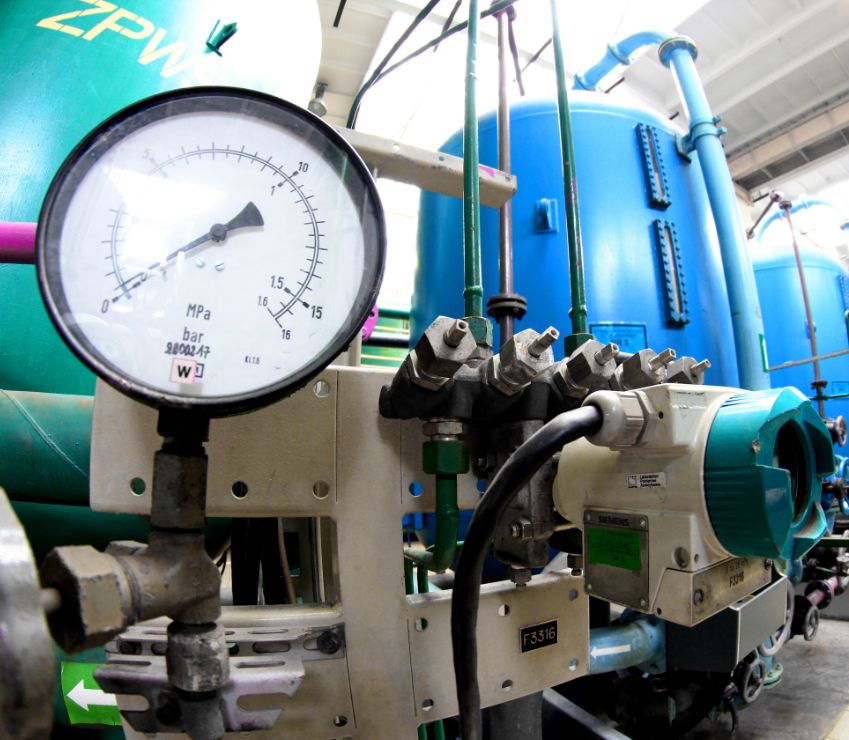Amendments to the Energy Law
The Energy Law and its implementing acts shape the country's energy policy, the principles and conditions for the supply and use of fuels and energy and define the authorities competent for fuel and energy management.
In 2019, the Energy Law was amended several times. These changes resulted, among others, from:
- entry into force of the Act of 14 December 2018 on the promotion of electricity from high-efficiency cogeneration,
- comprehensive regulation of energy storage,
- introduction of an obligation to install remote reading meters and to establish a metering information operator.
Carbon dioxide emissions
The risk associated with CO2 emissions and the need to use up a certain amount of emission allowances is increasing, as the actual CO2 emissions were lower than the limits allocated to the Company under the National Plan of Distribution of Allowances (KPRU). The low amount of emission allowances granted under KPRU III for 2013-2020 means:
- changes in the method of distribution of allowances into an auction system according to the new Directive on emission allowances
- only a certain part of the allowances will be received by the Company free-of-charge - under the National Implementing Measures and the National Investment Plan, the allocations for heat and electricity, respectively, will need to be evidenced with completed investment projects
- starting from 2020, all the allowances will be acquired through auctions.
In 2019 the revision of the European CO2 emission allowance trading system was completed.
Factors related to changes in demand for heat capacity by customers
In Wrocław, there is a large activity in the development industry, new buildings connected to the heating network increase demand for heat and power from the heating system.
In 2019, the estimated growth of the heat market was about 64 MWt, of which KOGENERACJA S.A. connected about 13 MWt and the heat distributor Fortum about 51 MWt.
On the new construction market (primary market) 54 MWt was connected (44 MWt in 2018), while on the secondary market (existing buildings) 10 MWt was connected (4 MWt in 2018). The development of the secondary market is an effect of the low emission elimination programme carried out jointly with the City of Wrocław and the heat distributor.
Another important factor in the development of the heating network is the implementation by KOGENERACJA S.A. of the construction of new heat distribution lines (in the area of Zawidawia and Siechnice) with a total planned budget of about PLN 13 MPLN, co-financed by NFOŚiGW under the Integrated Territorial Investments funds.
Factors responsible for the variation in heat and power sales
The main factors determining the demand for electricity and heat include the weather conditions, such as the air temperature, wind and precipitation, socioeconomic factors, such as the number of energy users, prices of energy resources, economic development and GDP growth and technological factors, such as the generation technology. Each of those factors has a bearing on the technical and economic conditions of energy generation and, consequently, on the Company’s performance results.
The volume of energy sales varies throughout the year depending mainly on the weather conditions (air temperature and length of the day). Higher demand for electricity is observed mainly in the winter months and is considerably lower in the summer. Moreover, seasonal variations are observed for certain groups of consumers. The seasonality effect is much more prominent in the case of households than in the case of industrial customers.
The sale of the Company’s products is subject to significant seasonal fluctuations. In the period from October to April the demand for heat is much higher than in other months. This means that the possibility to generate electricity in the combined system is also seasonal. The Company does have the technological capacity to generate electricity also in the period of a lower demand for heat (through the so called "pseudo-condensation") but this has been significantly limited since 1 July 2007, i.e. following the entry into force of another revision of the Energy Law, due to the requirement to keep the minimum gross efficiency of transformation of chemical energy into electricity and heat in the cogenerated system at 75%. In 2019, EC Wrocław achieved the efficiency of 82% (vs. 79.8% in 2018), while EC Czechnica 77% (76.9% in 2017).

